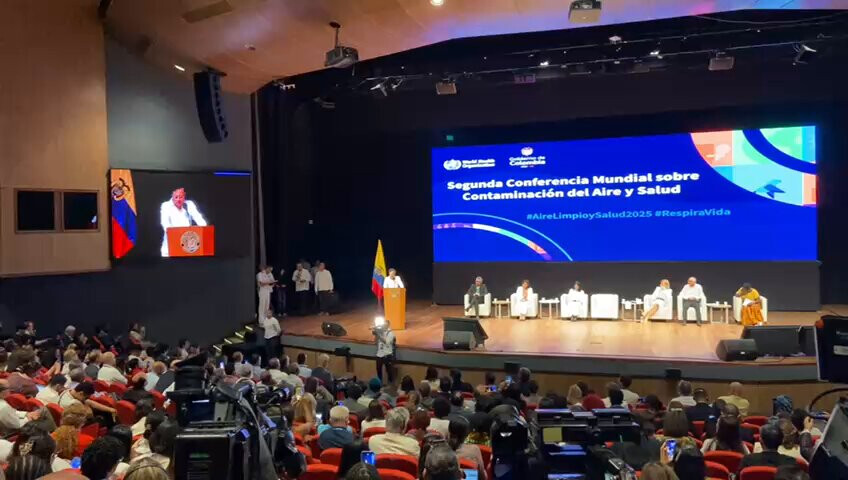
The Gran Chaco forest, located in the heart of South America, spans 1.1 million square kilometers across four countries: Paraguay, Bolivia, Argentina, and Brazil. It is the second-largest ecosystem in South America after the Amazon, often referred to as the 'Green Heart' of the continent.
This region boasts rich biodiversity, with over 3,400 plant species and around 150 mammal species, including jaguars, pumas, and giant armadillos. It also serves as a significant global carbon sink, absorbing approximately 13,000 tons of carbon dioxide per square kilometer.
However, the Gran Chaco is under severe threat from deforestation. The Paraguayan Chaco, in particular, has one of the highest rates of deforestation in the world. Over the past two decades, 90,000 square kilometers of forest have disappeared, with deforestation increasing by 78% in 2019.
The primary drivers of this destruction are indiscriminate logging for soybean cultivation and cattle ranching. Paraguay has a high dependence on cattle farming, and leather produced in the Chaco is exported to the European automotive industry. According to NASA, 20% of the Gran Chaco forest, or 14.2 million hectares, was destroyed between 1985 and 2016.
In response, Paraguayan environmental organization Quadriz is implementing the 'Chaco Green Heart Project' through the REDD+ initiative. This project aims to prevent deforestation, protect biodiversity, and revitalize the local economy.
Currently, the project has protected 32,000 hectares of forest, with plans to expand this to 300,000 hectares. Quadriz collaborates with local communities, using camera traps to monitor endangered species and improving residents' lives through job creation and the 'Chaco Alert' program.
Global Threat and Response to Air Pollution: The 2nd Global Conference on Air Pollution and Health in Cartagena, Colombia
Meanwhile, air pollution has emerged as a global threat extending beyond the Gran Chaco. The 2nd Global Conference on Air Pollution and Health, held from March 25 to 27, 2025, at the Cartagena de Indias Convention Center in Cartagena, Colombia, addressed this issue through global collaboration. Hosted by the World Health Organization (WHO) under the theme 'Accelerating action for clean air, sustainable energy access and climate change mitigation,' the event brought together over 700 health, environment, and energy ministers, experts, and civil society representatives from various countries to seek solutions to the health and environmental problems caused by air pollution.
According to the WHO, air pollution causes approximately 7 million deaths annually, and 99% of the world's population breathes air exceeding WHO guidelines. Pollution levels are particularly high in low- and middle-income countries, making it a major cause of non-communicable diseases such as cardiovascular disease, lung cancer, and chronic obstructive pulmonary disease. The conference reviewed global progress since the 2015 World Health Assembly resolution and the adoption of the Sustainable Development Goals (SDGs), highlighting the benefits of reducing air pollution for health, climate, gender, and equity.
The main objectives of the conference were:
To share the latest risk data on the health impacts of air pollution and energy deficits, and to promote assessment tools and resources for decision-making.
To encourage the participation of countries, regions, and cities in the BreatheLife campaign, aiming to reduce air pollution by 2030.
To address air pollution issues through increased climate and development funding, ensuring a just energy transition.
To encourage health professionals to protect the health of vulnerable populations through 'clean air prescriptions.'
Dr. María Neira, WHO Director of the Department of Environment, Climate Change and Health, emphasized that "Clean air is not a privilege, but a human right," adding, "The transition from burning coal to renewable energy, expansion of public transport, establishment of low-emission zones in cities, and promotion of clean energy use in homes are urgently needed." Furthermore, a 'Call for Action on Clean Air Pollution Reduction,' signed by over 47 million health professionals and civil society representatives, was presented at the conference, urging governments to adopt strict air quality standards and reduce emissions.
Combining Global Cooperation and Local Efforts
The conference connected regional cases like the Gran Chaco with the global issue of air pollution. Paraguay's Chaco Green Heart Project, which raises funds through the carbon credit market and collaborates with local communities to create a sustainable forest conservation model, was highlighted as a best practice. It was recognized for contributing to the reduction of air pollution and the mitigation of climate change, while also stimulating the local economy.
The Cartagena conference served as an important stepping stone towards the 2025 UN High-Level Meeting on Non-communicable Diseases, encouraging countries to make concrete commitments to reduce air pollution by 2030. Experts agreed that "Air pollution is a transboundary issue that requires both international cooperation and local implementation," and that "Action for clean air is not just about environmental protection, but about safeguarding human health and the future."
[Copyright (c) Global Economic Times. All Rights Reserved.]






























